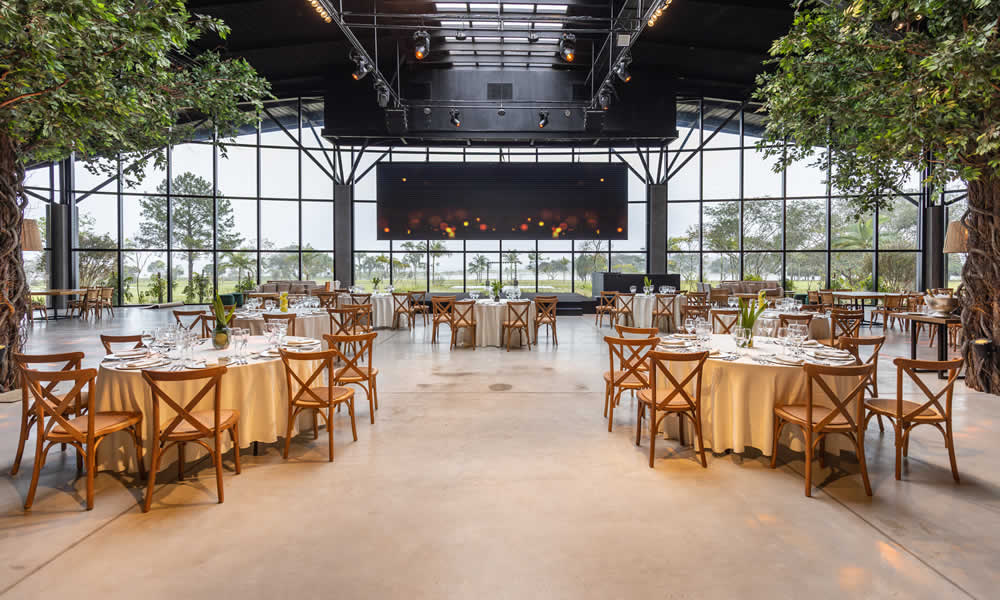Why Choose Hybrid Events?

How do you define hybrid events?
Hybrid events have been around in sport for ages. A live football match had it's paying customers in the stands with simultaneous broadcast on TV for fans around the country or world, a similar situation for large events like the Olympics and now the business world is using the same techniques. Defining the business version covers the same ground: 'an event that takes place in a physical venue, whilst attended by a live and interactive audience online'. What hybrid doesn't mean is an event that's broadcast live on any platform like YouTube or Zoom - the 'live broadcast' bit doesn't make it a hybrid event, just like the empty athletics stadia with fans sitting at home.
That's fine, but why do we need to know about hybrid events?
Covid infection numbers have been reduced, but hasn't disappeared in the UK and it's still in other countries. As I write this, India is battling, as is South America and there's no knowing whether Covid will emerge as another variant when winter comes in any of these locations.
People will want to attend events but there will be others that either cannot travel to the event or are compelled to stay at home because of local lockdown restrictions. Other reasons for staying put are disabilities which makes traveling difficult to events or caring duties which limits time away from base. Hybrid events will bring your event to anyone, anywhere in the world as well as satisfying your local market and I think that hybrid is here to stay.
Are there any advantages of hybrid events?
Besides widening your target market to anyone, anywhere, there are many advantages to staging a hybrid version of your event rather than a total in-person or total virtual one. One advantage is perception. Hybrid is seen as the new thing on the block and if you're able to arrange one, you'll be seen as leading edge. In the event world, where we're all looking for the next new thing, you'll be demonstrating it in the form of a well organised hybrid event, attracting people at the top of their game.
A hybrid format is seen as being cost effective. You still get the size of audience you want without having to cater for them in an actual venue, refreshments, hotel rooms, appropriate levels of staffing and security. The costs are reduced but you still get the exposure for your event.
Data Rules
Your event will still give you valuable data to provide a base for your future events. With hybrid, you will have the data which tells you how many people actually logged onto your event and when they left. I have also found that anonymous feedback is genuine feedback as people seem to be less inhibited online, so you can find out all sorts of useful things like the calibre of the speaker or presentation. Your in-person audience will still provide useful feedback if they are given the chance but it may not be quite so honest. You'll be able to determine which of the sessions were most popular and build on that to provide similar events in future.
The recorded hybrid event will just keep giving as you can use the recorded material for all sorts of post event marketing. A few ideas:
- short clips can be used to advertise another of your events
- the most popular speaker/presentation can be posted on your YouTube channel
- long clips can be used for an educational approach
- a video on your website is more successful in Google searches than text
- put relevant material together as a resource library or online course
- post Q & A sessions to solve your audience's problems
What about the sponsors?
Sponsors will love the continued exposure that your recordings will give them. Sponsors are very interested in hybrid events, if they can reach both the virtual and in-person audience. It gives them longevity in the continued exposure of your recordings as well as more sponsorship opportunities, like sponsoring the livestreams. As mentioned before, not only will you be getting valuable data, but sponsoring companies will as well and they will be able to use the data to justify further involvement with your events.
What are the disadvantages of a hybrid event?
It all depends on the internet connection. Choose a venue that can provide a good internet connection and test it before the event. Or as an alternative, get your own dedicated connection so that it's not affected by everyone else at the venue. Hotels are not always as good as they say they are so it's really important to check. Dedicated exhibition venues should have this sorted. And use wired internet and not Wi-Fi as the reliability is better.
Are hybrid events a good idea?
Yes. Definitely. The ability to have people in the room to generate income and still cater for attendees around the world who possibly couldn't get to your event because of travel restrictions, being able to cater for those with disabilities or caring responsibilities or lack of time or financial resources makes your event an inclusive one. It's impossible to replicate the buzz of an in-person event without having the audience present in the room, along with its networking opportunities, but if you have the right software the virtual audience can enjoy the experience without having to be present. Catering for the two markets doubles your exposure, which can only benefit your business.
References:
- https://www.encore-anzpac.com/calculating-bandwidth-for-meeting-and-event-planners-made-easy
- https://www.brella.io/blog/hybrid-event-benefits#valuableData/
- https://www.angage.com/en/hybrid-events-what-are-they-and-what-tools-do-you-need-to-organise-one/
- https://www.northstarmeetingsgroup.com/Planning-Tips-and-Trends/Event-Planning/Event-Programming/hybrid-events-best-practices-tips
- http://www.theicc.co.uk/organiser/hybrid/
- https://www.eventindustrynews.com/news/hybrid-events-what-are-they-and-what-are-their-benefits







Leave a comment